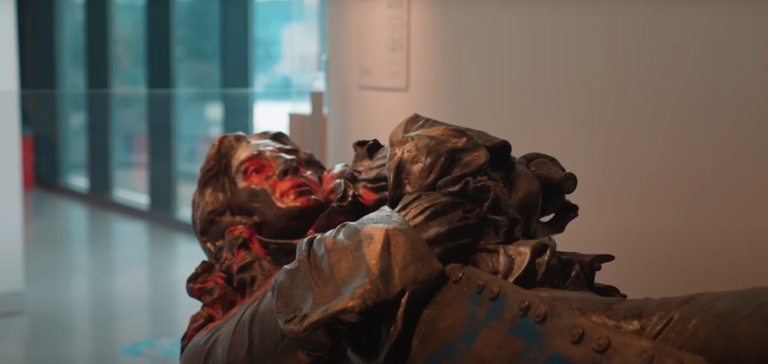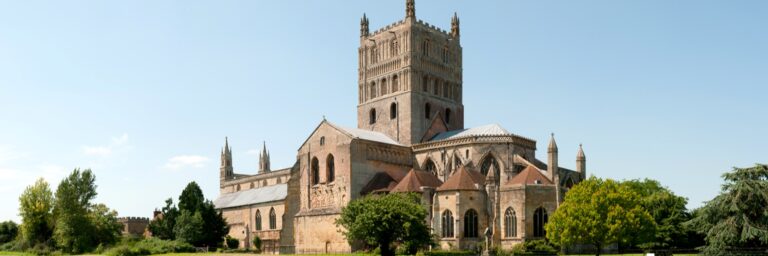| CC4HH
Women’s Suffrage in Cheltenham
Project Group: Anna Cardy, Laura Collins, Bradley Dickinson, James Juden, Sharmaine Roch, Dan Wills
This year marks the centenary of the 1918 Representation of the People’s Act by which women over the age of thirty gained the vote in Britain. Our group has been tasked with looking at the suffragette movement in Cheltenham and Gloucestershire. We decided that our best plan of action was to research and gather as much information surrounding the subject as possible. Following this, we met and discussed our research, deciding that we were individually each to focus on one aspect of our research findings to cover the subject efficiently.
Sharmaine’s focus of the project will primarily look at the nationwide movement of the 1911 census evasion, with an emphasis on Cheltenham and Gloucestershire. This strategy of opposition was reinforced by the idea of the ‘No Vote, No Census’ movement whereby women were encouraged to evade the census on the night of recording. Women argued that if they were not considered a citizen, they should not be included in official citizen documentation. Sharmaine has also been in contact with the Wilson Gallery in Cheltenham which once held an exhibition commemorating the suffrage movement.
Although she has made some progress and has been given bits of information about the exhibition pieces, she has yet to hear from the curators about whether the group will be granted permission to take photos of some of the exhibition pieces for our own exhibition. Nevertheless, this discussion is on-going, and we hope to hear from the Wilson soon. With regards to future research and progress, Sharmaine’s basis for research is growing and she hopes to visit Gloucestershire Archives in the nearby future to expand this further.
Dan and Brad’s focus for this project is the militant action in and around Gloucestershire. Cheltenham was a significant location in the suffrage movement in the South-West (second to Bristol). During our exploration of local news articles researching militancy during the suffrage campaign, we came across a discussion that arose multiple times concerning whether the suffrage movement was hindered by the few violent acts that suffragettes conducted during 1913-14, these being three separate acts of arson. The research explores whether or not suffrage demands would have been recognised without the acts of the militants, or whether the suffragettes harmed the image of the suffrage movement as a whole, possibly hindering and altering the public’s view on Cheltenham’s suffrage campaign.
Despite the national direction of militant and violent action, suffragette activities were rare in Cheltenham during this period. One of the rare examples of suffragette militancy in Cheltenham was the Alstone Lawn arson attack, committed on 21 December 1913 by two suffragettes who were later identified by local papers as ‘Red’ and ‘Black’. The two women were promptly arrested the next day and subsequently went on hunger strike. This was reported in the Gloucestershire Echo, which we have been able to view through chronographs at the local studies library. Further sentiment is expressed in other local papers such as the Cheltenham Chronicle.
Both James and Anna are focusing on the actions and the role of individuals involved in the suffrage movement in Cheltenham. James is focusing on Harriet McIlquham, the campaigner for equal rights and the presence of women in local government, and Madame Borovikovski(y), one of the first members of her local suffrage branch to be imprisoned for involvement in the cause of women’s enfranchisement. These women represent a rarely told history of the suffrage movement in Cheltenham. Anna is looking at Mrs Frances (Rosa) Swiney, who was the President of the Cheltenham’s Woman’s Suffrage Society as well as publishing widely on women’s rights. She is also looking at Mrs Florence Eagerny, who subscribed to many groups in Cheltenham, including the Women’s Freedom League and the Women’s Social and Political Union. Eagerney is also significant because of her husband’s involvement in the women’s rights movement. Mr Eagerney was the honorary secretary of the Cheltenham Branch of the Women’s Freedom League (WFL) in 1911, and in 1913 he became the President of the Tewkesbury Branch of the National Union of Women’s Suffrage Societies.

James is organising a video to be made showing the opinions and thoughts of local residents about the suffrage movement.
Laura is looking at contemporary suffrage groups, including those that were unsuccessful. The active groups include the National Union of Women’s Suffrage Society (NUWSS), the Women’s Social and Political Union (WSPU) and the more militant Women’s Freedom League (WFL). It is interesting to note that even the militant group was not prepared to damage property or use violence, even though they were willing to break the law. Their spokesperson, Florence Earengey, discussed with the local papers the violence used by the WSPU. As far back as the 1870s, there was considerable support for women’s suffrage in Cheltenham and later it was thought that many joined the NUWSS in order to support the cause.



